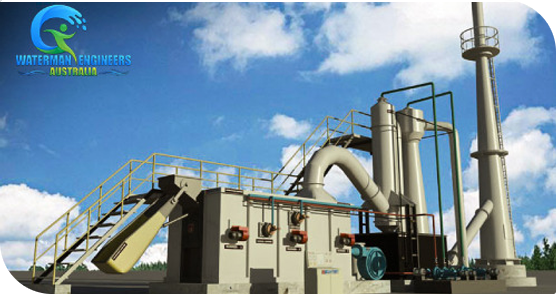Sustainable waste management is a vital aspect of our modern world, and it is essential that we all take a proactive approach towards protecting our environment and reducing our ecological footprint. With this in mind, we’ve put together a comprehensive overview of the different strategies and techniques that are being used to manage waste sustainably.
What is sustainable waste management?
Sustainable waste management is the process of managing and disposing of waste in an environmentally friendly way. The goal is to reduce the impact of waste on the environment, humans, and animals, while also conserving natural resources, reducing greenhouse gas emissions, and promoting sustainable development.

Why is sustainable waste management important?
Sustainable waste management is important for several reasons, including:
- Reducing the amount of waste that ends up in landfills, which helps to conserve natural resources and reduce greenhouse gas emissions
- Preventing environmental pollution, which can harm humans, animals, and ecosystems
- Promoting the efficient use of resources and the adoption of sustainable practices
- Encouraging public awareness and participation in waste reduction and management efforts
What are the different types of sustainable waste management?
There are several different types of sustainable waste management strategies that can be used to minimize the amount of waste that ends up in landfills:
- Recycling
- Composting
- Landfills with methane capture technology
- Waste-to-energy facilities
- Reduction of waste at the source
What are the key components of sustainable waste management?
The key components of sustainable waste management include:
- Clean waste collection and transportation systems
- Safe and efficient waste disposal and treatment facilities
- Public education and awareness campaigns to encourage waste reduction and recycling
- Enforcement of waste reduction and recycling regulations
- Collaboration between governments, businesses, and communities to promote sustainable waste management practices
What are the benefits of sustainable waste management?
There are several benefits of sustainable waste management, including:
- Reduced reliance on landfills, which can preserve natural resources and prevent pollution
- Improved air and water quality, which can benefit human health and the environment
- Creation of jobs in the waste management and recycling industry
- Increased efficiency in the use of resources, which can reduce costs for individuals, businesses, and communities

What are the different types of waste?
There are several different types of waste, including organic waste, paper and cardboard, plastic, glass, metal, electronic waste, hazardous waste, and construction and demolition waste.
What are the different strategies for managing different types of waste?
The strategies for managing different types of waste include:
- Organic waste: composting
- Paper and cardboard: recycling
- Plastic: recycling, waste-to-energy facilities, reduction at the source
- Glass: recycling
- Metal: recycling
- Electronic waste: recycling, hazardous waste disposal
- Hazardous waste: safe disposal at dedicated facilities
- Construction and demolition waste: recycling, waste-to-energy facilities
What are the benefits and drawbacks of composting?
Benefits
- Reduces the amount of waste that goes to landfills
- Produces nutrient-rich soil for gardening and agriculture
- Helps to conserve water by improving soil structure and reducing runoff
- Can reduce the use of chemical fertilizers and pesticides
Drawbacks
- May attract pests, such as rodents and insects, if not managed properly
- Can produce unpleasant odors
- May require regular maintenance and management

What are the benefits and drawbacks of waste-to-energy facilities?
Benefits
- Reduces the amount of waste that goes to landfills
- Produces electricity and heat, which can be used to power homes, businesses, and industries
- May reduce greenhouse gas emissions compared to landfilling
Drawbacks
- May produce air and water pollution if not managed properly
- May require large amounts of energy to operate
- May create residual ash and other byproducts that require disposal
What are the benefits and drawbacks of recycling?
Benefits
- Reduces the amount of waste that goes to landfills
- Conserves natural resources by reducing the need for new raw materials
- Reduces energy consumption and greenhouse gas emissions compared to manufacturing new products from raw materials
Drawbacks
- May require additional energy and resources to collect, sort, and process recyclable materials
- May produce lower-quality materials compared to those made from new raw materials
- May require significant public education and awareness campaigns to increase recycling rates

What are the benefits and drawbacks of reducing waste at the source?
Benefits
- Reduces the amount of waste that goes to landfills
- Conserves natural resources by reducing the need for new products
- May reduce costs for individuals and businesses
Drawbacks
- May require significant changes in consumer behavior and habits, which can be difficult to achieve
- May require significant investment in research and development to create new products and packaging that are more sustainable
What are some tips for reducing waste at home?
Here are some simple tips for reducing waste at home:
- Use reusable shopping bags, water bottles, and other containers
- Buy products with minimal packaging or packaging that can be easily recycled
- Compost food scraps and yard waste
- Recycle paper, cardboard, plastic, glass, and metal
- Repair broken items instead of replacing them
- Donate or sell unwanted items instead of throwing them away
What are some tips for businesses and industries to reduce waste?
Here are some tips for businesses and industries to reduce waste:
- Use raw materials and energy more efficiently
- Reduce packaging and material waste
- Invest in recycling and waste-to-energy technologies
- Train employees on sustainable practices and waste reduction efforts
- Partner with local governments and recycling programs to improve waste management
Conclusion
Sustainable waste management is an essential part of protecting our environment and promoting sustainable development. By using strategies such as recycling, composting, and waste-to-energy facilities, we can reduce the impact of waste on the environment and conserve natural resources. It is up to all of us to take action and promote sustainable waste management practices in our homes, businesses, and communities.